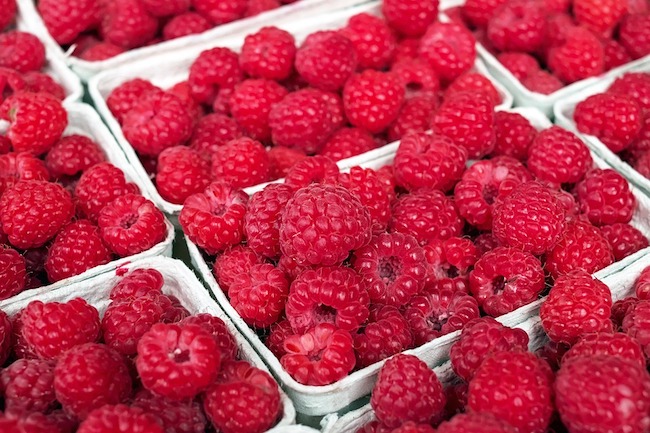Top 12 superfruits to eat during and after cancer treatment By Divina Ramirez for Prevention
Mainstream cancer treatments like chemotherapeutic drugs and radiation therapies can do immense and sometimes irreparable damage to cells, tissues, muscles and the like. But cancer treatments shouldn’t end there.
In a recent article published online, registered dietitian Rachael Link emphasized that eating nutritious fruits during and post-treatment can help cancer patients regain their strength and rehabilitate faster in general.
Cancer treatments often cause harmful side effects, she explains, but filling up on some “superfruits” can help offset these effects and strengthen immune health. Plus, these fruits possess potent anti-carcinogenic compounds that help fight cancer in the first place.
Top cancer-fighting superfruits
In the realm of health foods, “superfruit” is more than just a marketing term. Barbara Hale, a scientist from the Human Nutrition Research Center on Aging at Tufts University in Boston, explains that superfruits contain more polyphenols than other fruits.
Polyphenols are plant compounds capable of fighting inflammation and protecting cells from this inflammation. For the most part, these plant compounds are responsible for the antioxidant and anti-carcinogenic effects often attributed to some fruits.
Here are 12 of the most potent superfruits to eat during and after cancer treatment. Note that these fruits are best consumed as part of a balanced diet and tailored to fit the cancer patient’s nutritional requirements.
- Blueberries – Recent studies found that blueberries can confer healing effects on the brains of cancer patients affected by chemotherapy. In particular, blueberries help enhance memory and learning in both children and adult cancer patients.
- Oranges – Oranges are among the most nutritious sources of vitamin C, an essential micronutrient for optimal immune health. Current studies suggest that vitamin C can help inhibit the spread of cancer cells, and it also boosts iron absorption. In turn, this minimizes the risk of anemia, one of the most common side effects of taking chemotherapeutic drugs.
- Bananas – Bananas can be a great snack for cancer patients suffering from chronic diarrhea and constipation as a result of mainstream cancer treatments. This fruit contains a fiber called pectin that helps restore gut health. Some studies also suggest that pectin can inhibit the spread of colon cancer cells.
- Grapefruits – Like the orange, grapefruit makes for an excellent immune-boosting food. It also contains a carotenoid called lycopene that has long been studied for its promising cancer-fighting effects.
- Apples – An apple a day can keep cancer at bay thanks to the fruit’s rich pectin, potassium and vitamin C content. All three nutrients help stall cancer cell proliferation and support immune function for faster rehabilitation.
- Lemons – Another vitamin C-rich food, lemons can prevent the spread of cancer cells. Some studies also found that limonene, an active compound found in lemons, helps combat the adverse effects of cancer on the patient’s mental state.
- Pomegranates – These bright red fruits can improve cognitive abilities affected by chemotherapy, such as memory and concentration. Recent animal studies also found that pomegranates can also ease joint pain, a common side effect of radiation therapies.
- Mulberries – Like oranges, mulberries also contain both vitamin C and iron, a potent combination that protects against anemia due to cancer treatments. Mulberries also boast incredible amounts of a plant fiber called lignin. Studies suggest that lignin can boost immune function and kill off cancer cells.
- Pears – Pears are a lot like apples in terms of their nutrition profile. Rich in pectin and vitamins C and K, pears support optimal immune health. Recent studies also suggest that a higher intake of pears corresponds to a reduced risk of lung cancer.
- Strawberries – Antioxidant-rich strawberries can inhibit cancer cell growth and keep them from aggregating into tumors. Their soft texture also makes them suitable snacks for cancer patients with swallowing difficulties from either a tumor obstructing their throat or a side effect of treatment.
- Cherries – Cherries are abundant in cancer-fighting plant compounds, including beta-carotene, lutein and zeaxanthin. These compounds work with other nutrients in cherries, including vitamin C and potassium, to combat cancer cell growth.
- Blackberries – On top of their rich vitamin C content, blackberries boast a number of polyphenols, including ellagic acid, gallic acid and chlorogenic acid, that have been found to inhibit cancer formation and induce programmed cell death in lung cancer cells. (Related: This often forgotten berry has some amazing health benefits.)
Diet and nutrition are important components of holistic cancer treatments. On top of encouraging faster rehabilitation, superfruits like berries, lemons and pears can also help discourage tumor formation and cancer cell proliferation in the first place.




